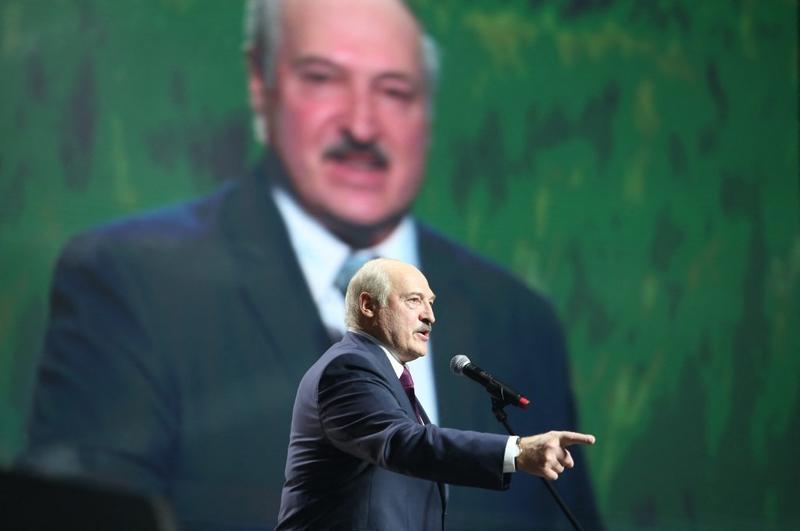 In this file photo taken on Sept 17, 2020, Belarus President Alexander Lukashenko delivers a speech at the forum of Union of Women in Minsk. Belarusian strongman Alexander Lukashenko is convening hundreds of loyal delegates at 'People's Assembly' this week to unveil promised reforms, in a display the embattled opposition has dismissed as political theatre. (TUT.BY / AFP)
In this file photo taken on Sept 17, 2020, Belarus President Alexander Lukashenko delivers a speech at the forum of Union of Women in Minsk. Belarusian strongman Alexander Lukashenko is convening hundreds of loyal delegates at 'People's Assembly' this week to unveil promised reforms, in a display the embattled opposition has dismissed as political theatre. (TUT.BY / AFP)
KYIV - Veteran President Alexander Lukashenko launched a Belarusian “People’s Assembly” on Thursday, inviting 2,700 people to discuss political reform in what opponents dismissed as a sham exercise to help him to cling to power.
Lukashenko, a former Soviet collective farm manager, has ruled Belarus since 1994 but faced an unprecedented wave of street protests since a presidential election last August that the opposition says was blatantly rigged.
Belarus President Alexander Lukashenko says "People's Assembly" could discuss draft constitutional reforms and politicians close to the authorities hinted at the possibility of an amnesty for political prisoners
Mass arrests and a severe crackdown on protests prompted a new round of Western sanctions but Lukashenko has held on thanks to diplomatic and financial support from traditional ally Russia, which sees Belarus as a buffer state against NATO.
Lukashenko says the assembly could discuss draft constitutional reforms and politicians close to the authorities hinted at the possibility of an amnesty for political prisoners.
ALSO READ: France's Macron says Belarus leader Lukashenko must go
The two-day event is expected to trigger new protests, which have simmered for months but reduced in size since August.
“Lukashenko is gathering loyalists at the so-called All Belarusian People’s Assembly to legitimise usurper in the eyes of the people,” said Franak Viacorka, an advisor to exiled opposition figure Sviatlana Tsikhanouskaya.
“Because Lukashenko understands that he lost people’s support, and he is still clinging on to power by all possible means.”
Most of the delegates attending the assembly are pro-government local deputies and officials who were elected at special closed sessions.
A journalist from the local Internet portal TUT.BY, who tried to attend one of these meetings, was detained and spent three days in a pre-trial detention centre.
“The fact that people were driven into courtyards with truncheons, where they continue to protest, does not mean the end of the political crisis,” political analyst Artyom Shraibman said.
READ MORE: Putin, Lukashenko reaffirm commitment to bolstering allied relations
“Dissatisfaction with the authorities has not gone anywhere.”



